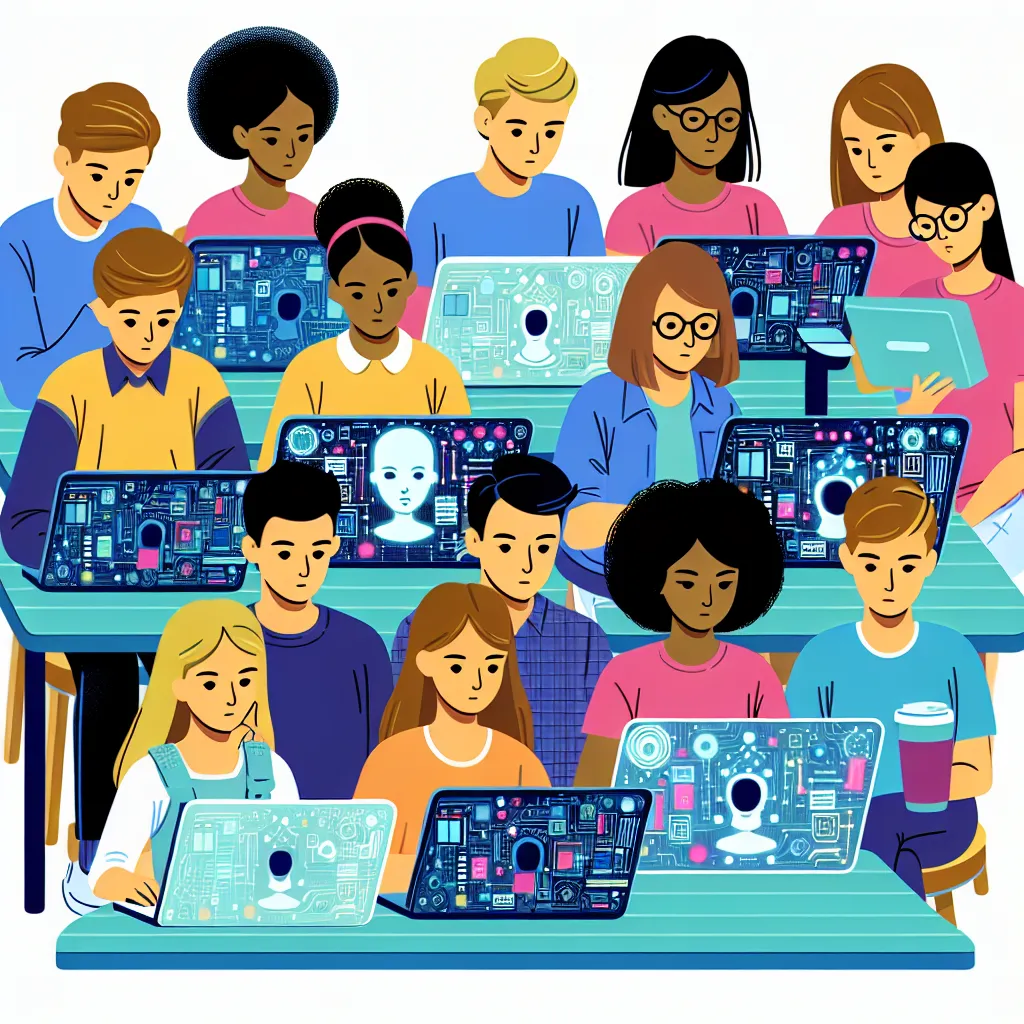Ask AI on The Internet
Question: give me an essay on why ai is good for my ela teacher who thinks ai makes you stupid
Title: The Beneficial Impact of Artificial Intelligence on Learning and Education Introduction As the landscape of education continues to evolve, the debate surrounding the role of Artificial Intelligence (AI) in learning has intensified. While some educators argue that AI fosters dependency, detracting from students' intellectual growth, a compelling case can be made for its positive contributions to education. This essay aims to elucidate the myriad ways in which AI can enhance learning, countering the notion that it undermines students' cognitive abilities. Enhancing Personalized Learning One of the most significant benefits of AI in education is its ability to facilitate personalized learning experiences. Traditional classroom settings often struggle to cater to the diverse learning needs of individual students. AI-powered educational tools can analyze students' performance data and adapt learning materials accordingly. For instance, adaptive learning platforms can identify areas where a student may be struggling and provide additional resources or alternative explanations to reinforce understanding. This tailored approach helps students grasp complex concepts at their own pace, ultimately fostering a deeper comprehension rather than a superficial memorization of content. Promoting Critical Thinking Contrary to the belief that AI diminishes cognitive skills, it can actually serve as a catalyst for critical thinking and problem-solving. AI can handle routine tasks, freeing up valuable time for students and educators to engage in more meaningful activities. For example, AI can grade assignments and quizzes, allowing teachers to focus on developing creative lesson plans and facilitating in-depth discussions. Additionally, AI-powered tools can present students with real-world problems and simulations that require thoughtful analysis and decision-making. By challenging students to apply their knowledge in practical scenarios, AI encourages the development of essential critical thinking skills. Enhancing Collaboration and Communication AI technology can also enhance collaboration and communication among students. Virtual learning environments and AI-driven platforms provide opportunities for students to work together on projects, regardless of geographical barriers. Language translation tools powered by AI can bridge communication gaps, enabling students from diverse linguistic backgrounds to collaborate effectively. Furthermore, AI chatbots can facilitate interactions by answering common questions and providing instant feedback, fostering a more dynamic and interactive learning environment. These collaborative opportunities help students develop interpersonal skills and learn from diverse perspectives, preparing them for a globalized workforce. Assisting Educators AI is not just advantageous for students; it also offers significant support for educators. By automating administrative tasks such as attendance tracking and grading, AI allows teachers to allocate more time to instruction and mentorship. AI-driven analytics can provide educators with insights into student performance, identifying patterns and trends that may require intervention. This data-driven approach enables teachers to make informed decisions about instructional strategies and interventions, ultimately enhancing the overall quality of education. Instead of replacing educators, AI serves as a valuable tool that augments their capabilities and helps them focus on what they do best – teaching and inspiring students. Fostering Lifelong Learning In an era characterized by rapid technological advancements, cultivating a mindset of lifelong learning is crucial. AI can play a pivotal role in this regard by providing continuous learning opportunities beyond the traditional classroom setting. Online courses, virtual assistants, and interactive tutorials powered by AI offer flexible and accessible avenues for individuals to acquire new skills and knowledge. By promoting self-directed learning, AI empowers students to take ownership of their education and pursue their interests independently and motivated. Conclusion While concerns about the potential drawbacks of AI in education are valid, it is important to recognize the transformative benefits it can bring to learning and intellectual development. AI has the potential to create personalized learning experiences, foster critical thinking, encourage collaboration, support educators, and promote lifelong learning. Instead of making students "stupid," AI can serve as a powerful ally in the quest for knowledge, equipping them with the skills and competencies needed to thrive in an increasingly complex world. By embracing AI thoughtfully and responsibly, we can unlock its full potential to enhance the educational experience and prepare students for a successful future.
Think your answer is better than the AI's? Post it below.
Other Most Relevant Posts:
 Unfortunately, the Harvard referencing style for a website does not provide specific guidance on how to reference content structured in a question-and-answer format on a webpage. However, a general wa
Unfortunately, the Harvard referencing style for a website does not provide specific guidance on how to reference content structured in a question-and-answer format on a webpage. However, a general wa
Question Tags
If you want your question answered by an AI, click here.






Post your own comment: